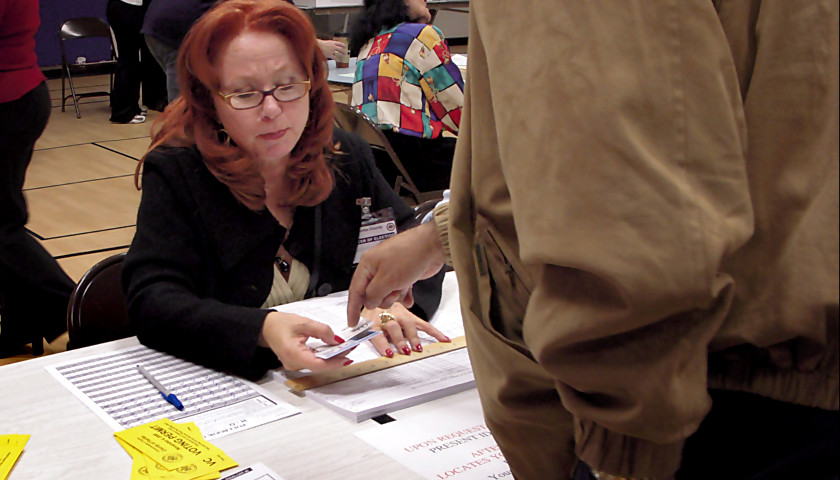A federal judge on Thursday blocked a Florida law capping contributions to political committees behind ballot initiatives which become constitutional amendments. The law would have capped the donation limit at $3,000.
Florida’s Constitution is one of the most amended state constitutions in the country, and right-leaning groups and lawmakers have worked to try and ensure Florida’s constitution is “not for sale” to the highest fundraiser or special interests.
Florida Attorney General Ashley Moody’s lawyers, who have backed the law, have said the bill is designed to ensure “very well-heeled special interest” contributors are not flooding Florida’s Constitution with out-of-state issues.
“Here, the challenged provision creates a temporary, targeted cap on contributions to ballot initiative committees during the signature-gathering process to ensure the integrity of the state’s process for amending the Florida Constitution — the charter of Florida’s government. The cap allows potential signatories (i.e., registered voters), who might be asked to lend their signatures to an initiative petition during the interactive in-person signature-gathering phase, to have assurance that the funding for the initiative is provided by many donors at no more than $3,000 each and that the significant funding needed for a successful initiative petition has not been provided by a small handful, or even a single, very well-heeled special interest donor.”
Some of the inspiration of the constitutional integrity effort stems from the large number of constitutional amendments placed on Florida’s general election ballot in recent years. Specifically, in 2018 when banning oil drilling and vaping were on the same ballot initiative. However, that initiative was placed on the ballot by Florida’s Constitution Revision Commission (CRC).
U.S. District Judge Allen Winsor – a Trump appointee – said the burden of proof to limit political contributions falls on the state.
“First, contributions to political committees that advocate for ballot initiatives are ‘beyond question a very significant form of political expression,’” Winsor wrote.
The state “bears the burden of justifying restrictions on political expression by advancing at least ‘a significantly important interest’ that is ‘closely drawn to avoid unnecessary abridgment of associational freedoms.’”
– – –
Grant Holcomb is a reporter at the Florida Capital Star and the Star News Network. Follow Grant on Twitter and direct message tips.
Photo “Election Worker” by Keith Jenkins CC2.0-ND-NC.








